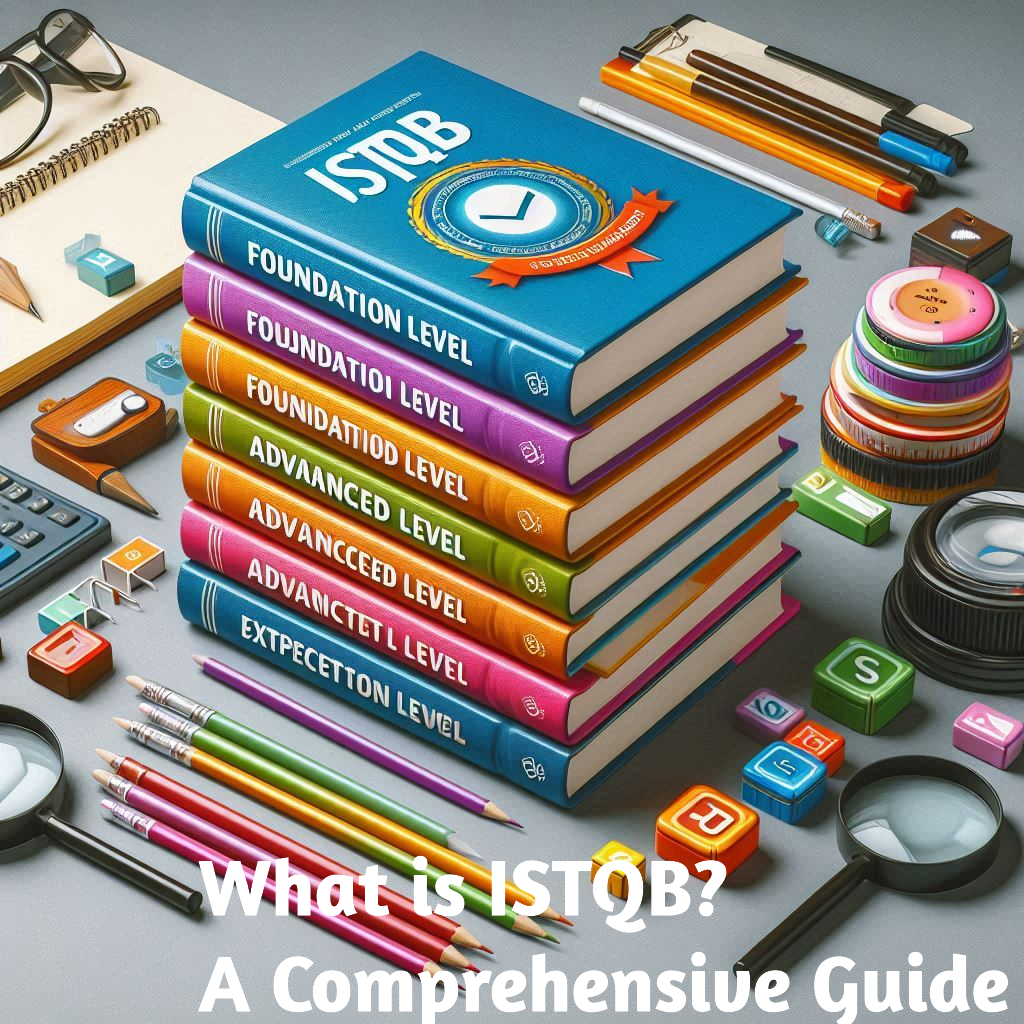
istqb
The International Software Testing Qualifications Board (ISTQB) is a globally recognized organization that offers certifications in software testing. Established in 2002, it aims to standardize the competencies and qualifications required for software testers worldwide. With over a million certifications issued, ISTQB has become the go-to choice for professionals seeking to validate their expertise in software testing.
Meaning of ISTQB
At its core, ISTQB provides a structured certification scheme that includes various levels, each tailored to specific roles and expertise within software testing. The certifications are widely accepted and valued by employers, making them a key differentiator for job seekers in the software quality assurance industry.
The acronym ISTQB stands for:
- I – International
- S – Software
- T – Testing
- Q – Qualifications
- B – Board
Why ISTQB Certification?
Achieving an ISTQB certification offers several benefits:
- Global Recognition: ISTQB is recognized across borders, which means your certification is valuable whether you are working locally or internationally.
- Career Growth: It enhances your career prospects by providing a tangible validation of your skills and knowledge in software testing.
- Standardized Learning: It follows a well-defined syllabus, ensuring that everyone certified has the same foundational knowledge, reducing ambiguity in skill levels.
- Advanced Learning Path: ISTQB certifications are progressive. Once you start with the Foundation Level, you can advance to more specialized or expert levels as your career evolves.
ISTQB Certification Levels
ISTQB offers a tiered certification scheme that accommodates different levels of experience and expertise.
- Foundation Level:
- This is the entry-level certification that covers the basics of software testing. It’s ideal for beginners or anyone looking to gain a strong understanding of fundamental testing concepts.
- Topics Covered: Testing fundamentals, testing lifecycle, test techniques, testing tools, and test management.
- Target Audience: Freshers in software testing, developers, and project managers who want to understand testing principles.
- Advanced Level:
- Once certified at the Foundation Level, testers can move on to the Advanced Level. This is for individuals who already have practical experience and want to deepen their understanding of specific areas.
- Sub-levels:
- Test Analyst
- Technical Test Analyst
- Test Manager
- Topics Covered: Advanced test techniques, risk-based testing, test automation, and management strategies.
- Expert Level:
- This level is for seasoned professionals aiming to specialize in specific areas of testing or take on leadership roles.
- Focus Areas: Test automation, security testing, and improving the test process.
- Target Audience: Senior professionals looking for leadership or specialized roles in software testing.
How to Get ISTQB Certified
The process of getting ISTQB certified is straightforward but requires preparation:
- Select the Level: Choose the certification level based on your experience and career goals.
- Study the Syllabus: Each level has an official syllabus provided by ISTQB, which outlines the topics and knowledge areas.
- Enroll for the Exam: Register through an accredited testing center or an online provider.
- Prepare with Materials: You can use ISTQB-provided materials, study guides, or enroll in training programs.
- Take the Exam: The exams are multiple-choice, and the required pass marks vary depending on the level.
Key Benefits of ISTQB Certification
- Industry-Wide Recognition: An ISTQB certification demonstrates your commitment to your career and can help you stand out in a competitive job market.
- Quality Assurance: Organizations benefit from employing ISTQB-certified testers, as it ensures a higher standard of testing practices, reducing risks and improving the quality of software.
- Cost-Effective: For individuals, ISTQB certification is relatively affordable compared to other professional certifications, making it an accessible way to advance your career.
Conclusion
ISTQB is an excellent way to formalize and validate your software testing skills. Whether you’re just starting out or you’re a seasoned professional looking to specialize, ISTQB offers a clear path for career development. By following the structured certification process, you’ll be well-equipped to tackle the challenges of software quality assurance in a competitive and evolving industry. NightCloakedDeck!






